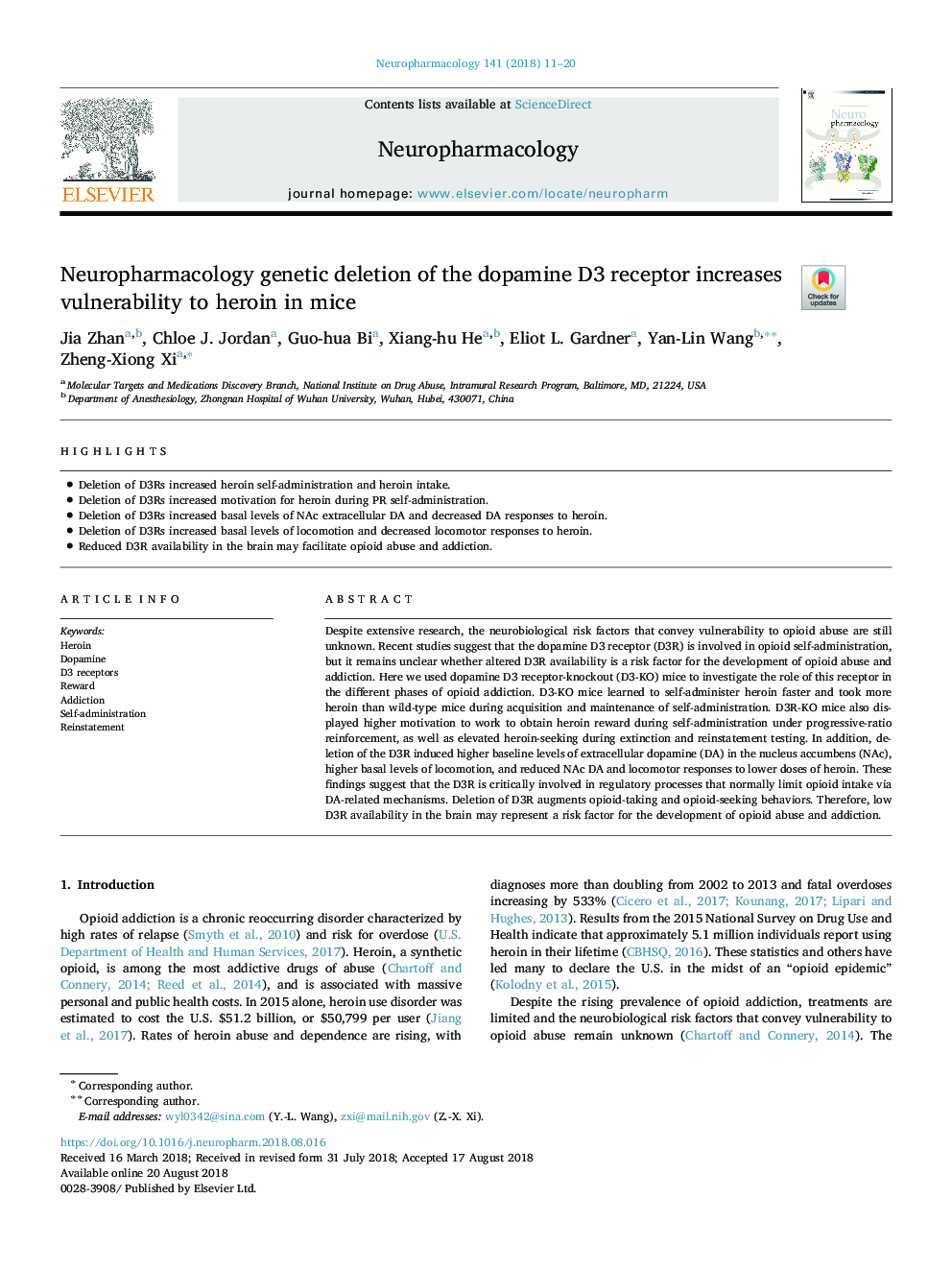| کد مقاله | کد نشریه | سال انتشار | مقاله انگلیسی | نسخه تمام متن |
|---|---|---|---|---|
| 8950048 | 1645757 | 2018 | 10 صفحه PDF | دانلود رایگان |
عنوان انگلیسی مقاله ISI
Neuropharmacology genetic deletion of the dopamine D3 receptor increases vulnerability to heroin in mice
دانلود مقاله + سفارش ترجمه
دانلود مقاله ISI انگلیسی
رایگان برای ایرانیان
کلمات کلیدی
موضوعات مرتبط
علوم زیستی و بیوفناوری
علم عصب شناسی
علوم اعصاب رفتاری
پیش نمایش صفحه اول مقاله

چکیده انگلیسی
Despite extensive research, the neurobiological risk factors that convey vulnerability to opioid abuse are still unknown. Recent studies suggest that the dopamine D3 receptor (D3R) is involved in opioid self-administration, but it remains unclear whether altered D3R availability is a risk factor for the development of opioid abuse and addiction. Here we used dopamine D3 receptor-knockout (D3-KO) mice to investigate the role of this receptor in the different phases of opioid addiction. D3-KO mice learned to self-administer heroin faster and took more heroin than wild-type mice during acquisition and maintenance of self-administration. D3R-KO mice also displayed higher motivation to work to obtain heroin reward during self-administration under progressive-ratio reinforcement, as well as elevated heroin-seeking during extinction and reinstatement testing. In addition, deletion of the D3R induced higher baseline levels of extracellular dopamine (DA) in the nucleus accumbens (NAc), higher basal levels of locomotion, and reduced NAc DA and locomotor responses to lower doses of heroin. These findings suggest that the D3R is critically involved in regulatory processes that normally limit opioid intake via DA-related mechanisms. Deletion of D3R augments opioid-taking and opioid-seeking behaviors. Therefore, low D3R availability in the brain may represent a risk factor for the development of opioid abuse and addiction.
ناشر
Database: Elsevier - ScienceDirect (ساینس دایرکت)
Journal: Neuropharmacology - Volume 141, October 2018, Pages 11-20
Journal: Neuropharmacology - Volume 141, October 2018, Pages 11-20
نویسندگان
Jia Zhan, Chloe J. Jordan, Guo-hua Bi, Xiang-hu He, Eliot L. Gardner, Yan-Lin Wang, Zheng-Xiong Xi,